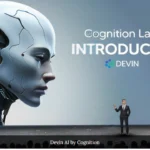Artificial intelligence (AI) is a double-edged sword, offering both dangers to process protection and an extraordinary opportunity to enhance productivity and fuel global growth, in keeping with the International Monetary Fund (IMF) chief, Kristalina Georgieva. In a recent interview in Washington, she mentioned the potential effect of AI on jobs in advanced economies and its various outcomes on rising markets and growing nations.
Job Impact: A Global Perspective
Georgieva highlighted a big location from a brand new IMF record, stating that about 60% of jobs in superior economies are expected to be suffering from AI. However, the impact is projected to be less excessive in growing nations, where around 40% of jobs globally are probable to stand repercussions. The higher the ability stage of a task, the greater the capacity impact, she introduced.
Uneven Effects and Productivity Gains
While AI can also lead to activity displacement for a few, the IMF report shows that only half of the roles impacted will face bad results. The ultimate jobs ought to experience more suitable productiveness, resulting in accelerated income stages for workers. The choppy results of AI adoption underline the need to focus on assisting low-profit international locations in shooting the possibilities presented through AI.
Global Economic Outlook
The IMF chief expressed optimism approximately the worldwide monetary outlook, emphasizing that the sector is on the right track to meet previous forecasts. However, she stated the need for a cautious method of economic policy, emphasizing the sensitive balance required for a gentle landing.
AI and Global Productivity
Georgieva pressured the importance of an AI-related productivity enhancement for the global economy, particularly as it continues to develop at historically muted tiers. The upcoming financial forecasts from the IMF are expected to shed mild on the global boom trajectory.
AI has the potential to reshape the global economy. Will it be a job-killing monster or a productivity superpower? New IMF staff research explores these issues in depth.
Blog: https://t.co/LMpupRBcBt
Paper: https://t.co/xzTe6Vakt5 pic.twitter.com/r71NtOK69C— IMF (@IMFNews) January 15, 2024
Challenges and Tough Year Ahead
Looking ahead to 2024, Georgieva anticipates a challenging year for fiscal coverage globally. Countries, grappling with debt burdens from the COVID-19 pandemic, face the project of rebuilding depleted buffers. Additionally, with elections in about eighty international locations, the IMF is worried approximately the ability to stress spending and its effect on the development made in fighting inflation.
AI’s Double-Edged Sword
Georgieva shed mild on the complicated nature of AI adoption, recognizing its ability to boost productivity for some even as simultaneously posing threats of task displacement, decreased wages, and constrained hiring for others. The burden of those capacity influences is expected to fall heavily on superior economies, with up to 60% of jobs going through capacity disruption. However, it is important to be aware that emerging markets and decrease-profits countries additionally confront demanding situations, grappling with issues along with a lack of infrastructure and skilled workforces.

Social Dynamics and Emerging Trends
Moving past the monetary realm, Georgieva underscored the capacity for AI to stir social unrest, mainly as younger, tech-savvy people enthusiastically include the generation. This enthusiasm might inadvertently leave their greater experienced opposite numbers grappling with the need to conform. The worldwide discourse on AI, presenting enterprise leaders at prestigious occasions like Davos, displays the developing impact of AI in shaping the future panorama of labor. This shift isn’t always merely approximately economics but also approximately the profound societal modifications and challenges that accompany the integration of AI into our workplaces.
Proponents and Optimism
Despite the challenges, some AI proponents argue that widespread adoption could lead to a significant boost in labor productivity. Some estimates suggest that AI could increase global GDP by 7% annually over 10 years, according to a March 2023 estimate by Goldman Sachs economists.
In conclusion, the dual impact of AI on job security and global productivity underscores the need for a balanced and inclusive approach. As the world grapples with the challenges and opportunities presented by AI, collaboration and strategic planning will be crucial to ensuring a positive and equitable future for the workforce.











Add Comment